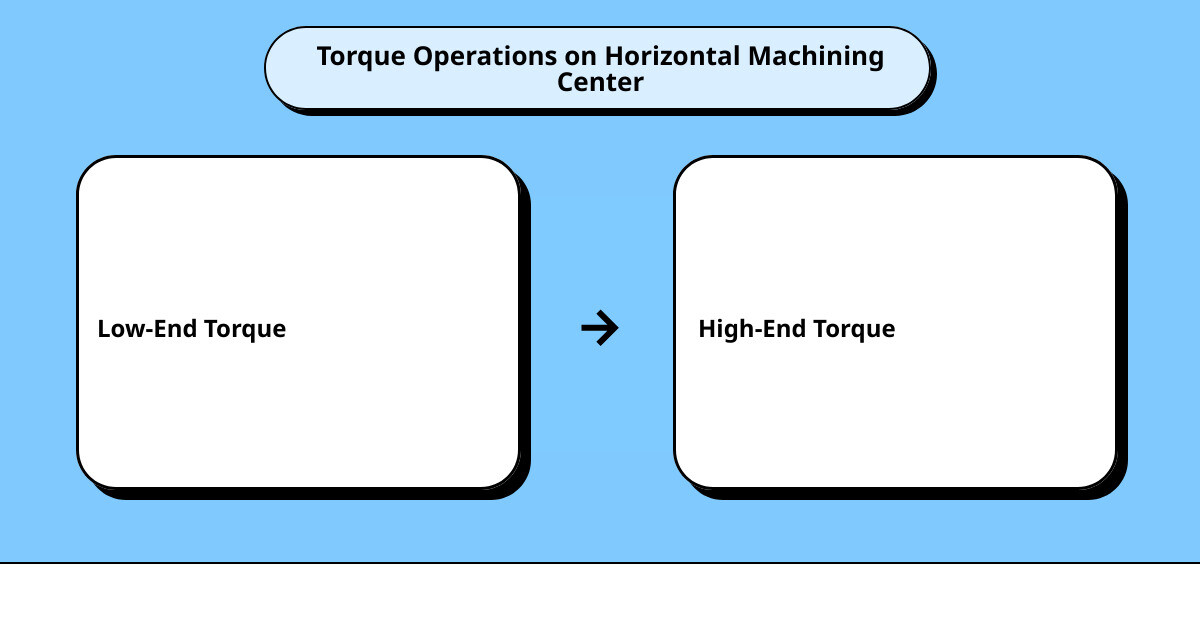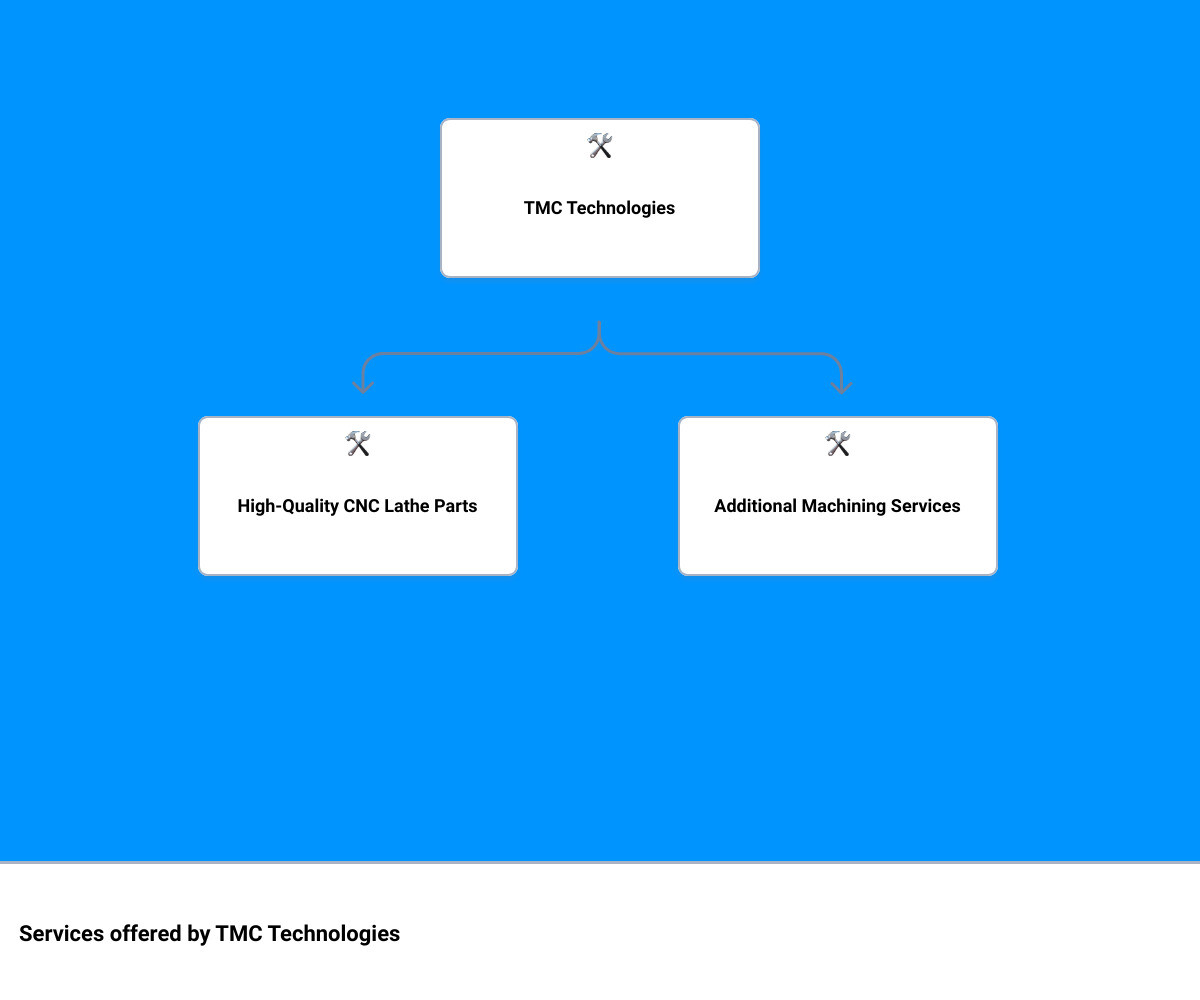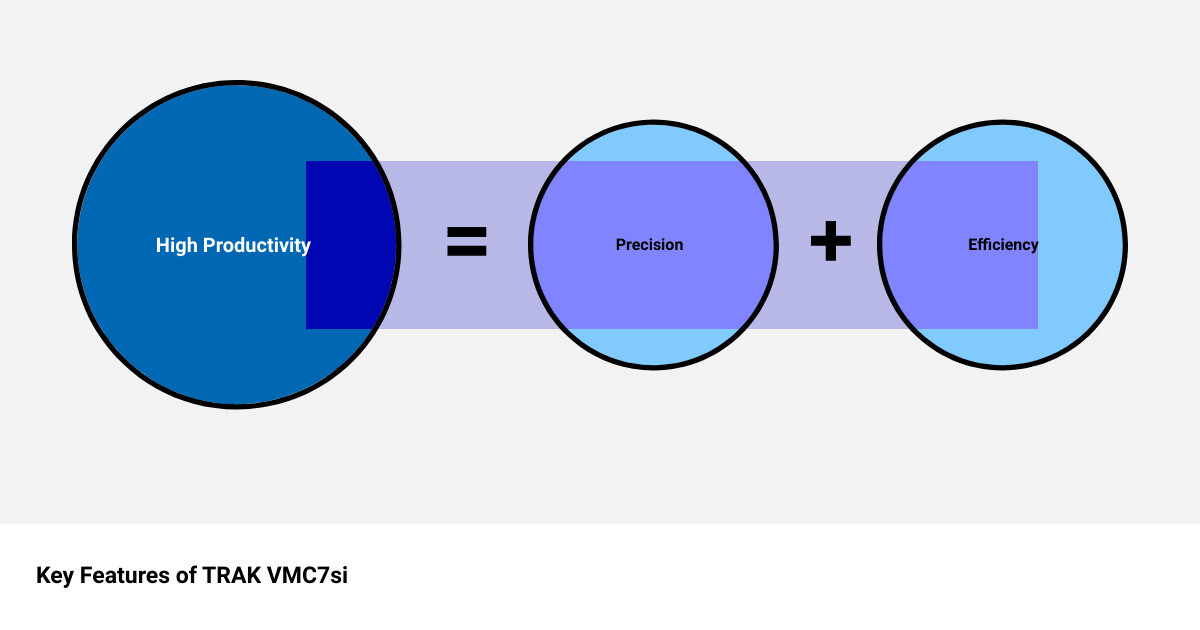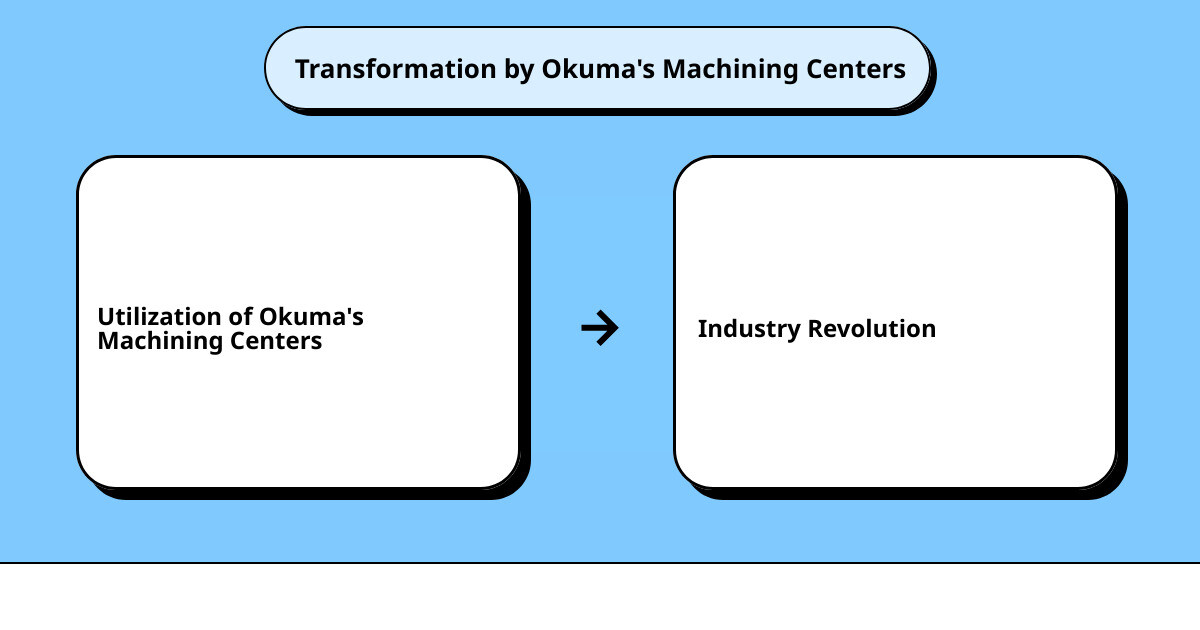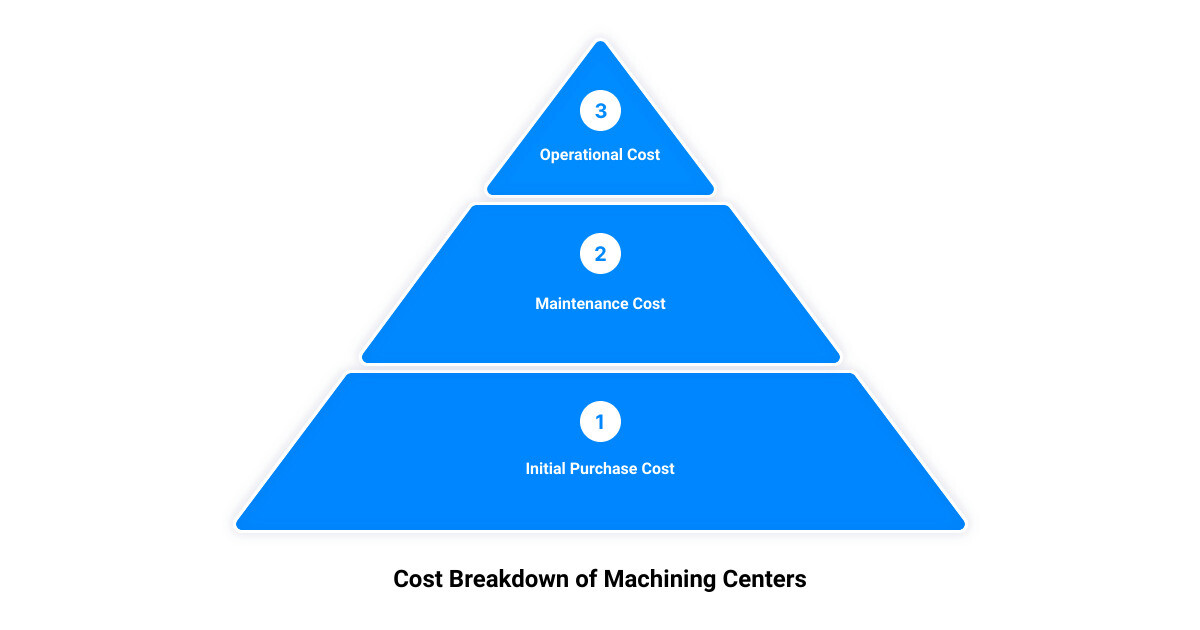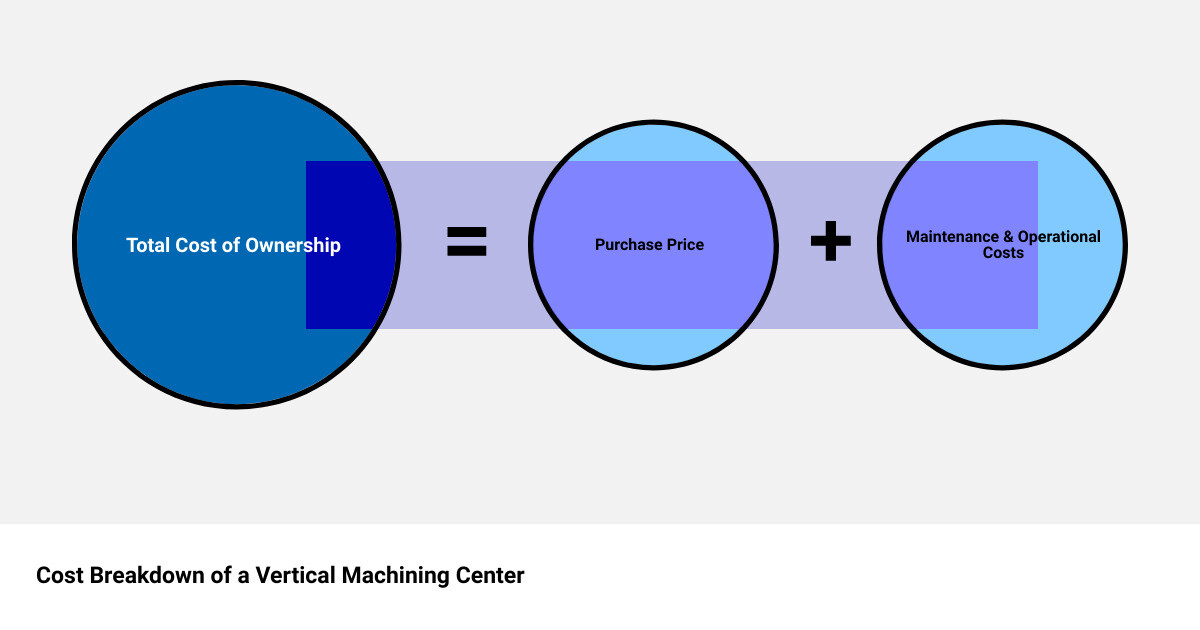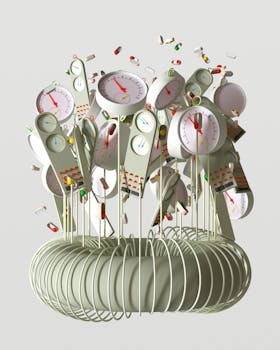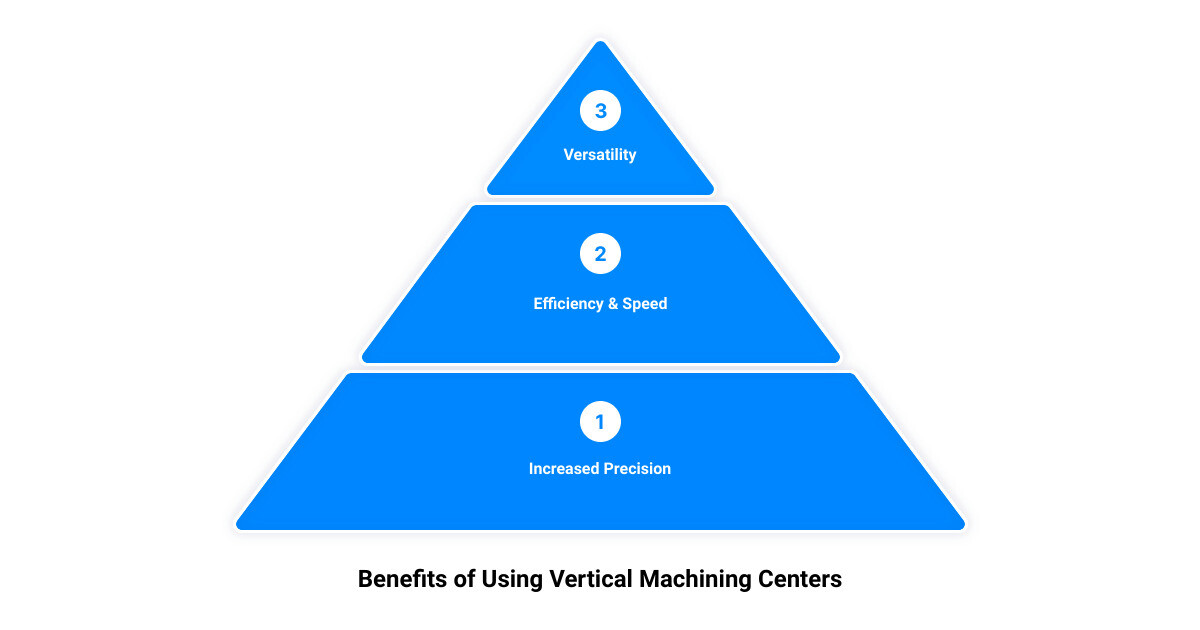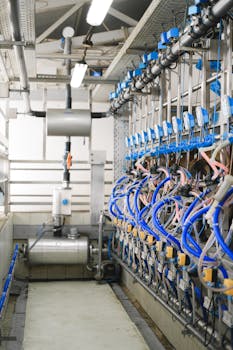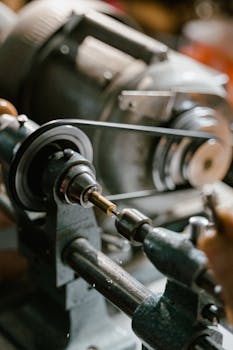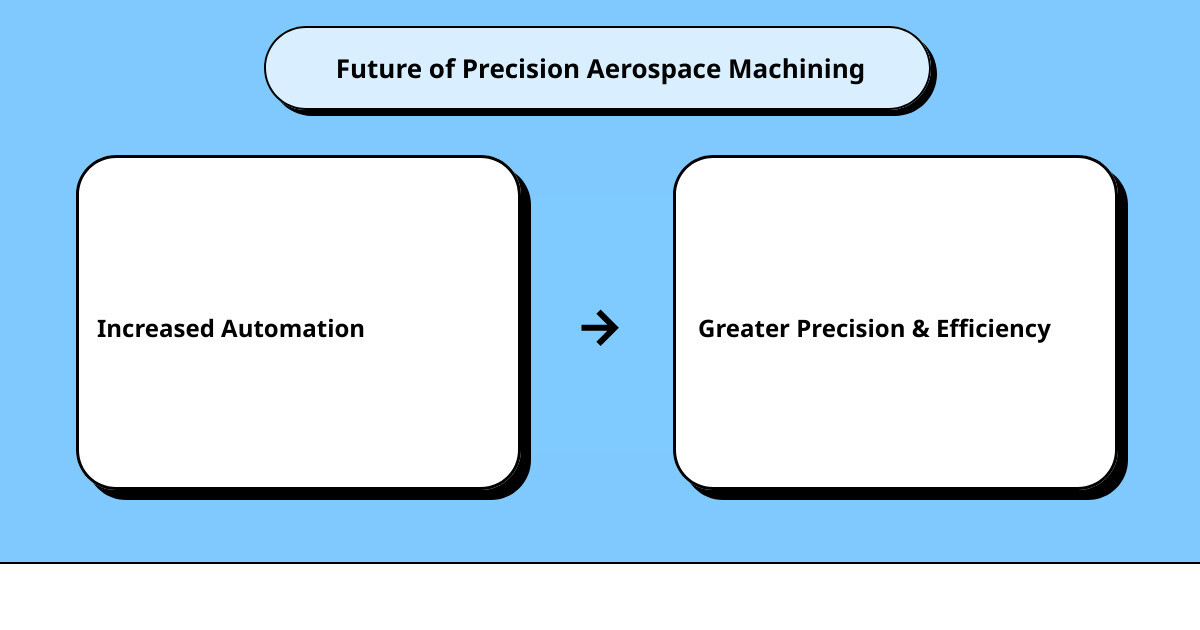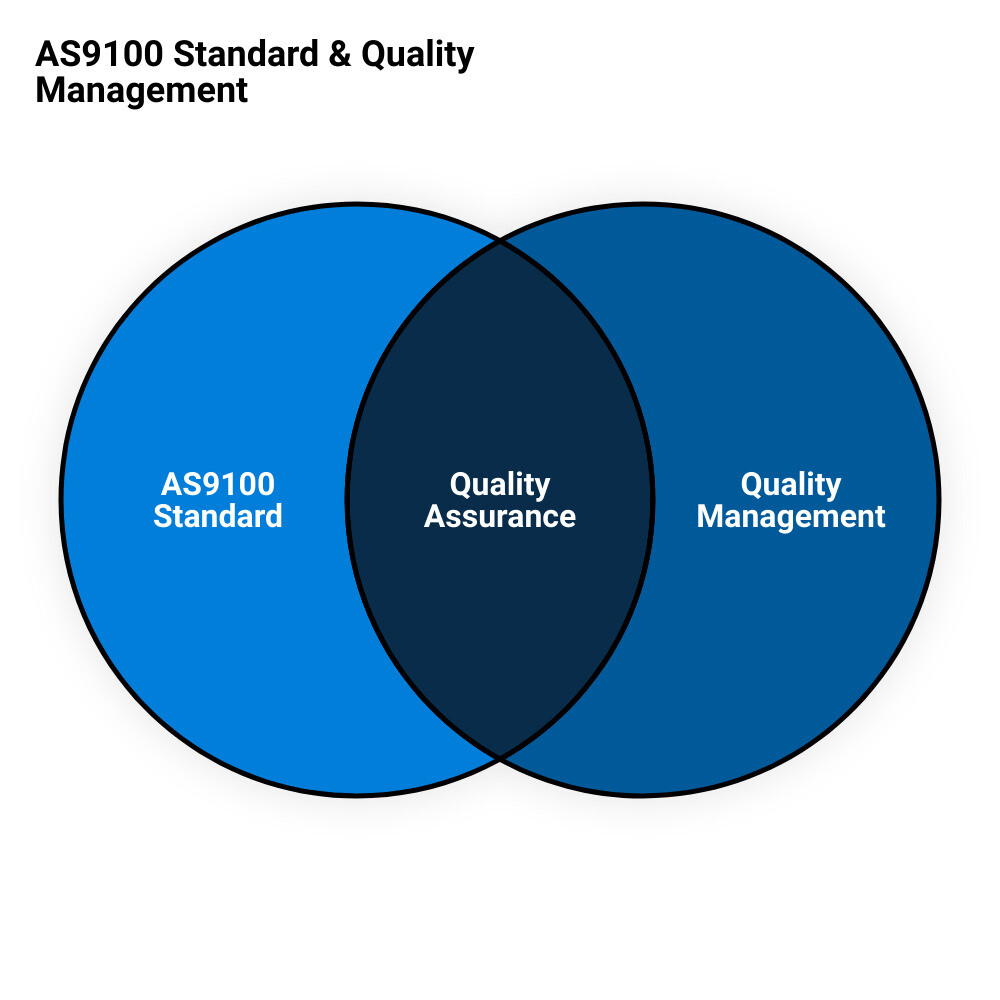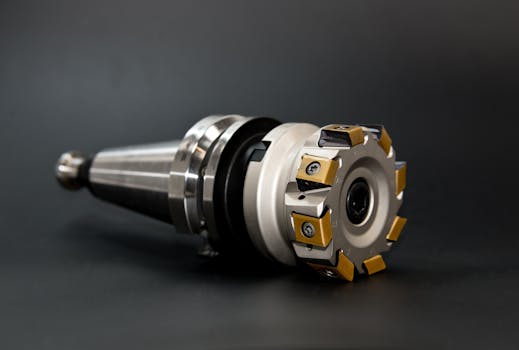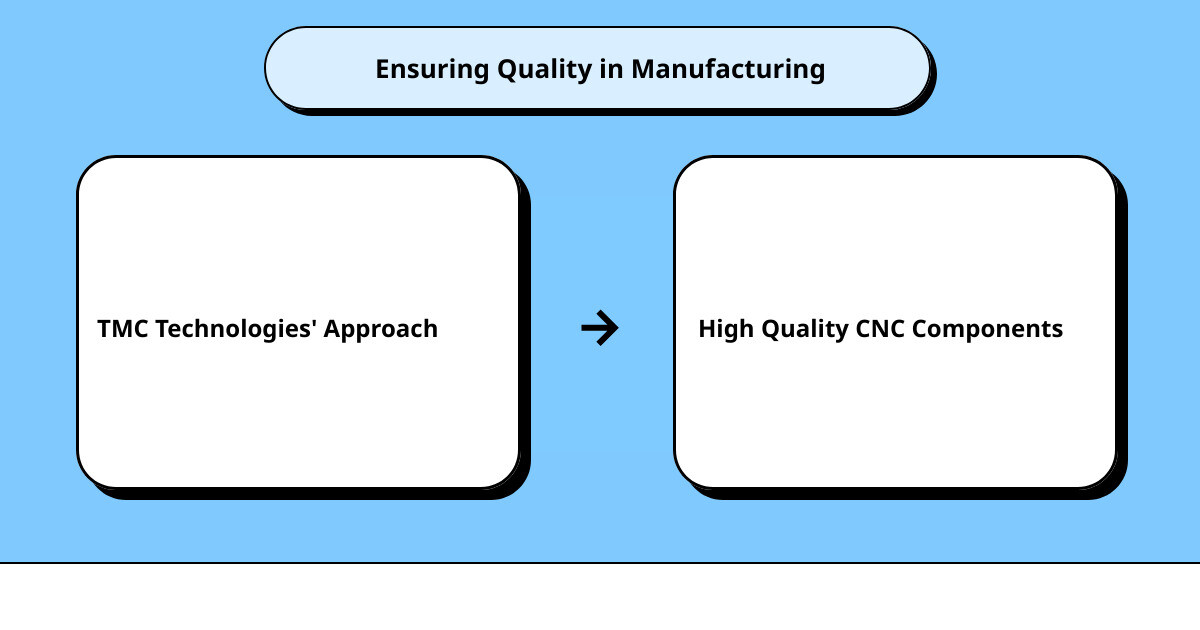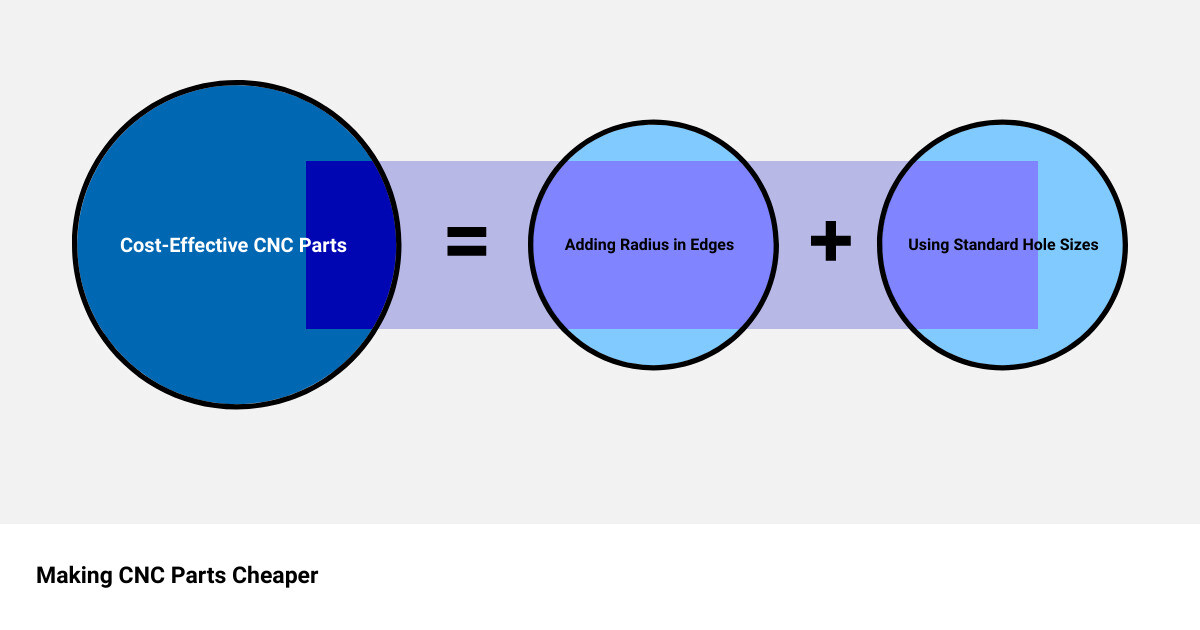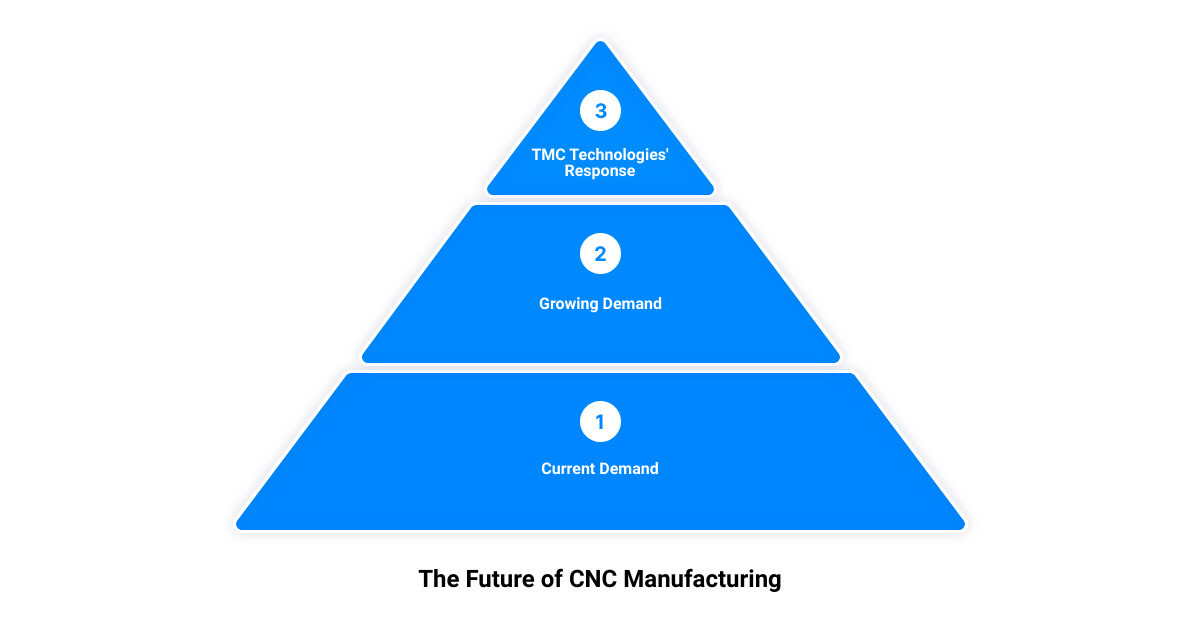Introduction: The Future of CNC Machining Centers
In the fast-paced world of manufacturing, the search for precision, speed, and efficiency never ends. One technological marvel that has consistently delivered on these fronts is the CNC machining center. As we cast our gaze into the future, one thing is clear – the dawn of a new era in CNC machining centers is upon us.
These advanced machines, like those developed by TMC Technologies, are not only transforming the manufacturing landscape but are also redefining it. With enhanced capabilities to handle complex geometries, significantly reduce manual intervention, and consistently deliver high-quality output, CNC machining centers are poised to become the powerhouse of future smart factories.
But what exactly are these new CNC machining centers? How have they evolved from traditional machining processes? What role do they play in the modern manufacturing industry, and what impact do they have on the bottom line for businesses like yours? This article will delve into these questions, and more, as we explore the future of CNC machining centers. Whether you’re a manufacturing giant or a small company seeking to optimize your industrial processes, this deep dive into the world of CNC machining centers holds valuable insights for you.
The Evolution of CNC Machining Centers
In the high-stakes world of manufacturing, the need for precision, efficiency, and cost-effectiveness is paramount. The rise of CNC (Computer Numerical Control) technology marked a significant turning point, empowering manufacturers to produce complex parts with unparalleled precision and consistency. But the relentless pursuit of perfection didn’t stop there. The evolution from traditional machinery to advanced CNC machining centers has been transformative, revolutionizing manufacturing processes across the globe.
The Journey from Traditional to CNC Machining
The traditional machining process was largely manual, requiring skilled operators to manually control the machinery. While this enabled a high degree of customization, it was time-consuming, labor-intensive, and prone to human error. The advent of CNC technology revolutionized this process by introducing computer-controlled machinery, enabling extreme precision and consistency in manufacturing.
CNC machines, which include lathes, mills, routers, and grinders, use digital instructions, known as G-codes, to control the machine’s movements. This results in highly precise and repeatable operations. However, the evolution didn’t stop there. The drive for further efficiency and versatility led to the development of CNC machining centers.
The Role of CNC Machining in Modern Manufacturing
Modern CNC machining centers are a cut above traditional CNC machines. They integrate an automatic tool changer and a workpiece clamping system, enabling them to perform multiple operations such as milling and drilling without manual intervention.
Machining centers can be further classified based on the orientation of the spindle, the part of the machine that holds the cutting tool. Vertical Machining Centers (VMCs) have a vertically oriented spindle, ideal for precision work. On the other hand, Horizontal Machining Centers (HMCs) have a horizontally oriented spindle, which is better suited for production work.
The pinnacle of this evolution is the 5-axis machining center, which can pivot the tool and/or the part to mill and drill at various orientations. This level of geometric flexibility has revolutionized the manufacturing of complex parts, catapulting productivity and precision to new heights.
In today’s manufacturing landscape, CNC machining centers have become an indispensable tool. They have not only streamlined production processes but also have significantly reduced the margin for error, thereby ensuring the consistent high-quality output that today’s industries demand.
As we move forward, the role of CNC machining centers in modern manufacturing is set to become even more pronounced. With advancements in technology continuing to push the boundaries of what’s possible, the future of CNC machining centers is indeed bright.
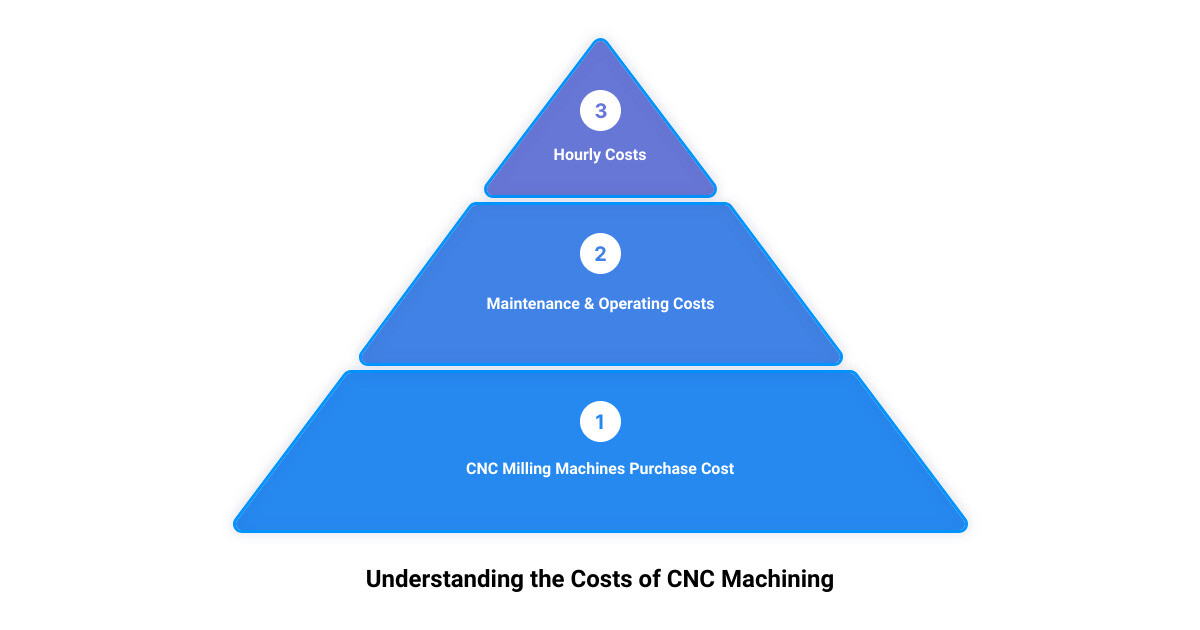
Understanding the Costs of CNC Machining
Navigating the costs of CNC machining can often seem as intricate and complex as the process itself. Understanding these costs is crucial for companies to make informed decisions about their manufacturing needs. Let’s delve into the financial landscape surrounding CNC machining.
Why CNC Milling is Expensive
CNC milling machines stand out not just for their advanced capabilities but also for their hefty price tag. But why is CNC milling so expensive? It’s primarily due to the complex nature of the moving parts involved. CNC milling machines are more difficult to assemble, operate, and maintain, which is reflected in their higher operational costs. They offer the ability to perform more advanced operations, which justifies their higher price point. However, these machines are not just costly to acquire but can also be expensive to operate, making them a significant investment.
Average Costs of CNC Milling Machines
The cost of CNC milling machines can vary widely. Factors such as the machine’s capabilities, size, and brand all play a role in determining its price.
To give you a rough estimate, hobby or small business plasma tables can cost between $1,000 and $5,000. On the other hand, professional CNC machines and entry-level 3-axis mills can range from $50,000 to $100,000. Industrial HD plasma tables, which are designed for high-volume production and precision, can cost anywhere from $40,000 to $120,000.
Hourly Costs of CNC Machining
The costs associated with CNC machining don’t end with the purchase of the machine. It’s also essential to account for the running costs, which are often calculated on an hourly basis.
For 3-axis CNC milling, the hourly cost generally ranges between $35 to $40. If you’re opting for multi-axis machining for increased precision and complexity, the cost can skyrocket to between $75 and $120 per hour. These costs encompass machine depreciation, maintenance, energy consumption, and labor.
In the long run, the hourly cost of machining can significantly impact your manufacturing operations’ cost-efficiency. By optimizing machine usage and improving efficiencies, businesses can potentially lower their hourly costs, thereby enhancing profitability and competitiveness in a cutthroat marketplace.
In conclusion, understanding the costs associated with CNC machining, both initial and ongoing, is crucial for making informed decisions that align with your business goals. It’s about striking the perfect balance between cost-efficiency and performance to ensure your manufacturing operations continue to thrive.
Exploring the New CNC Machining Centers
In the relentless drive towards precision, efficiency, and cost-effectiveness, technological advancements continue to shape the landscape of CNC machining centers. Let’s explore some of the groundbreaking solutions provided by industry leaders in this realm.
Okuma Corporation: A Leader in CNC Machining Centers
In the forefront of this technological revolution, we find Okuma Corporation, a Japanese company highly regarded for its state-of-the-art CNC machining centers. Okuma’s machining centers are not just tools but catalysts for industry transformation. They utilize advanced technologies to help businesses optimize operations, improve efficiency, and reduce downtime.
One of their standout innovations, the Thermo-Friendly Concept, minimizes thermal deformation, ensuring maximum accuracy and stability even during long runs. Their automation systems, underpinned by the Connect Plan, provide unparalleled visibility of the plant floor, helping businesses identify actionable insights for increased profitability. To sum up, Okuma is not just a manufacturer but a trendsetter, shaping the future of the CNC machining center industry.
NewCNC: Innovations in Woodworking and Panel Processing Machines
Another innovator making waves in the industry is NewCNC. They specialize in offering advanced solutions for woodworking and panel processing machines. NewCNC’s machining centers stand out for their user-friendly interfaces, ensuring a seamless experience for operators. They also excel in the realm of automation, providing businesses with the tools to streamline processes and enhance productivity.
Productivity: High-Quality CNC Machining Centers for Streamlined Processes
Productivity is yet another key player in the CNC machining center market. Their mission is to grow your company, maximize profitability, and streamline processes. Productivity offers high-quality, reputable CNC machining centers that include vertical, horizontal, as well as 4th and 5th axis machines.
These CNC machining centers allow companies to manufacture complex parts with a user-friendly, single-setup machining process, offering significant productivity advantages — cutting labor costs, increasing part quality, and reducing work time. They also provide various versions of CNC turning centers like horizontal machining centers (HMCs) and vertical machining centers (VMCs), catering to the diverse needs of manufacturers.
In the dynamic world of CNC machining, these innovators are redefining the norms, pushing the boundaries of precision, efficiency, and cost-effectiveness.
The Role of TMC Technologies in the CNC Machining Industry
As we delve into the world of CNC machining leaders, the name TMC Technologies prominently stands out. With a robust reputation built upon years of delivering high-quality services, TMC Technologies has etched its mark in the CNC machining industry.
TMC Technologies: Providing High-Quality CNC Lathe Parts
TMC Technologies, based in Iowa, is a top-tier supplier of CNC lathe parts, crucial for various industrial machinery. The company offers a comprehensive suite of machining services, focusing on delivering high-quality components that meet the most stringent quality standards and precise specifications. Their expertise extends to CNC milling, CNC turning, CNC grinding, and CNC fabrication services.
Every CNC lathe part that comes out of TMC Technologies is a testament to the company’s dedication to detail and accuracy. Whether it’s prototype parts or a full production run, they deliver the highest quality of CNC lathe parts, competitively priced, and with fast delivery times.
TMC Technologies: Unique Selling Proposition
What sets TMC Technologies apart in this competitive landscape is its unwavering commitment to precision and quality. Their unique selling proposition lies in their combination of extensive industry experience, cutting-edge technology, rigorous quality control, and a commitment to customer satisfaction.
They offer more than just high-quality manufacturing. Their range of services includes design and fabrication services for custom applications, understanding that every client has unique needs. This focus on customization establishes TMC Technologies’ commitment to providing tailored solutions, marking their position as a leader in precision machining parts manufacturing.
Moreover, TMC Technologies understands the urgency that often accompanies the need for precision parts. As such, they strive to deliver short lead times without compromising the high-quality workmanship that they are known for.
In a nutshell, TMC Technologies is more than a manufacturer; it’s a reliable partner that understands your needs, values quality, and delivers precision. This dedication to excellence solidifies their role as a leading name in the world of CNC machining.
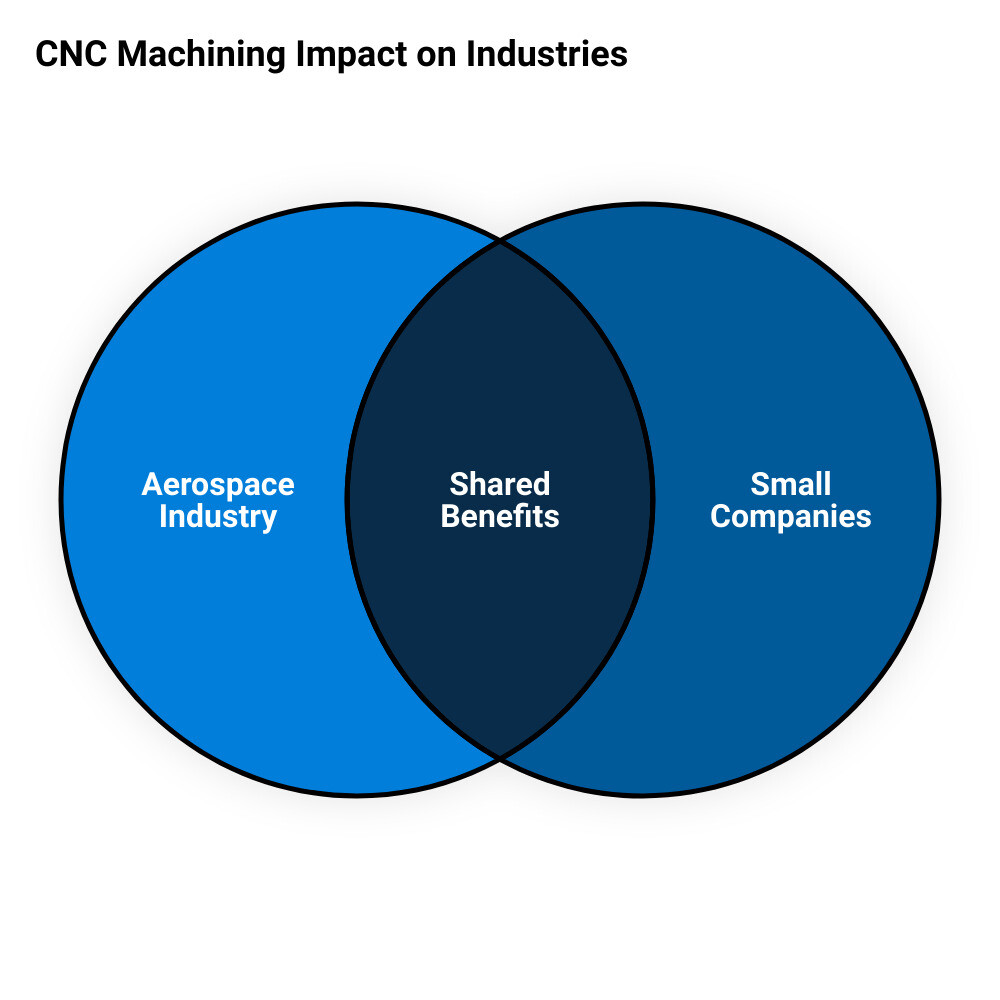
The Impact of CNC Machining Centers on Various Industries
In the era of modern manufacturing, CNC machining centers have proven their worth across various industries. From aerospace to small-scale businesses, the advent of CNC technology has revolutionized the production process, delivering precision and efficiency at an unprecedented scale.
CNC Machining in the Aerospace Industry
The aerospace industry is a high-stakes environment where the tiniest error can lead to catastrophic results. This is where precision is not just a goal, but a necessity. The complex components of aircraft and spacecraft, which often have intricate geometries, are critical for safety, reliability, and functionality.
In this context, CNC machining centers have become an indispensable asset. Leveraging advanced technologies like multi-axis CNC machines, aerospace manufacturers can now produce parts with innovative designs that meet exact specifications. These machines perform simultaneous translation and rotational movements, allowing for the precise machining of intricate parts and complex tool designs.
Furthermore, CNC machining has greatly enhanced the efficiency of aerospace manufacturing. The use of computer-aided design (CAD) and computer-aided manufacturing (CAM) software packages has streamlined the production process, creating a more efficient workflow. This has helped the aerospace industry meet strict international quality standards, ensuring the components meet the required functional and regulatory requirements.
CNC Machining in Small Companies
CNC machining centers have also found their place in small companies, providing them with a cost-effective solution for precision manufacturing. With CNC technology, small businesses can now achieve the same level of precision and quality as their larger counterparts, but at a fraction of the cost.
Vertical Machining Centers (VMCs), with their vertically operated spindles that tackle workpieces from above, are a popular choice among small companies. These machines are less expensive than Horizontal Machining Centers (HMCs) and have become more advanced over the years, incorporating high-speed spindles and conversational control programming.
Moreover, CNC machining allows small companies to manufacture complex parts with a user-friendly, single-setup machining process. This not only simplifies the production process but also significantly reduces labor costs, increases part quality, and cuts down work time.
In conclusion, the impact of CNC machining centers on various industries is undeniable. They have revolutionized the manufacturing process, delivering precision and efficiency while meeting the industry-specific demands. As CNC technology continues to evolve, its role in these industries is only set to increase, shaping the future of manufacturing.
Conclusion: The Future is Bright for CNC Machining Centers
As we set our sights on the horizon of advanced manufacturing, the future of CNC machining centers shines brightly. These powerhouse machines are not merely tools of today, but the architects of tomorrow’s industry. As we’ve seen from companies like Okuma, NewCNC, and TMC Technologies, CNC machining centers are continually evolving, integrating the latest innovations in automation, data analysis, and precision engineering.
The Evolution Continues
The ongoing advancements in CNC technology are pushing the boundaries of what’s achievable in manufacturing. From complex geometries to single-setup machining processes, these new CNC machining centers are redefining efficiency and precision. The advent of five-axis machines and new high-speed spindles is transforming the way parts are produced, paving the way for fewer setups, shorter lead times, and a higher degree of precision.
Driving Innovation and Efficiency
CNC machining centers are driving innovation across multiple industries. From aerospace to small companies, these machines offer a level of adaptability and efficiency that is unrivaled. The ability to operate with minimal human intervention, thanks to automated tool changers and robotic arms, is not only increasing productivity but also significantly reducing the risk of human error.
A Future Powered by Data
The integration of data-driven manufacturing and automation is another exciting development in the world of CNC machining centers. Real-time data collection and analysis, enabled by advancements in the Internet of Things (IoT) and cloud computing, is leading to improved quality control, predictive maintenance, and process optimization. This data-driven approach is adding a new layer of capability to these machines, enhancing their precision, efficiency, and reliability.
TMC Technologies and the Future of CNC Machining
Among the pioneers in CNC machining, TMC Technologies stands out for their commitment to providing high-quality CNC lathe parts and unique solutions to the industry. Their CNC machining centers are designed with the future in mind, integrating the latest technology to deliver unparalleled precision and efficiency.
In the final analysis, the future of manufacturing lies in the hands of CNC machining centers. These advanced machines are not only shaping the present but are also the key to unlocking a future of unprecedented precision, efficiency, and innovation. In this bright future, TMC Technologies and other industry leaders will continue to play a significant role, leveraging their expertise to drive the industry forward. The revolution is not just coming, it’s already here, and it’s powered by the technological prowess of CNC machining centers.


